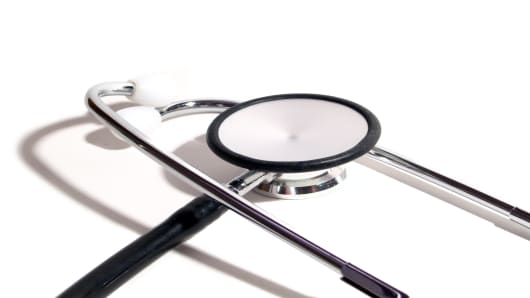Europe's financial crisis is costing lives, with suicides and infectious diseases on the rise, yet politicians are not addressing the problem, health experts said on Wednesday.
Deep budget cuts and growing unemployment are tipping more people into depression, and falling incomes mean fewer people can see their doctors or afford to buy medicines.
The result has been a reversal since 2007 of a long-term decline in suicide rates, coupled with worrying outbreaks of diseases including HIV - and even malaria - in Greece, according to an major analysis of European health in The Lancet journal.
Countering these threats requires strong social protection schemes, researchers argue. But the austerity measures imposed after a string of crises in southern Europe - most recently in Cyprus - has shredded such safety nets.
"There is a clear problem of denial of the health effects of the crisis, even though they are very apparent," said lead researcher Martin McKee of the European Observatory on Health Systems and Policies, a group backed by the World Health Organisation.
"The European Commission has a treaty obligation to look at the health effect of all of its policies but has not produced any impact assessment on the health effects of the austerity measures imposed by the troika."
The so-called troika of the European Commission, European Central Bank and International Monetary Fund is the group of lenders responsible for a series of economic bail-outs.
McKee said the failure of European governments and the European Commission to face up to the health consequences of their policies was reminiscent of the "obfuscation" of the tobacco industry over curbs on smoking.
The case of Iceland, however, suggests there is an alternative.
Despite a devastating financial crisis, Iceland rejected austerity, following a referendum, and instead continued to invest in its social welfare system. As a result, the researchers found there had been no discernible effects on health since the crisis.
Iceland's economy has now returned to growth, but the recovery is patchy and inflation has remained stubbornly high.
By contrast, McKee and colleagues reported that healthcare systems were now under strain in many European countries, including Spain, Portugal and Greece, with a series of negative consequences.
In particular, there is a growing trend for patients to seek care at a later stage, even though this will mean worse outcomes for individuals and higher costs for the healthcare system in the long term.
In Greece, meanwhile, hospitals are struggling to maintain basic standards, resulting in a rise in antibiotic resistant infections, and patients have suffered shortages of a number of medicines, including epilepsy treatments.


